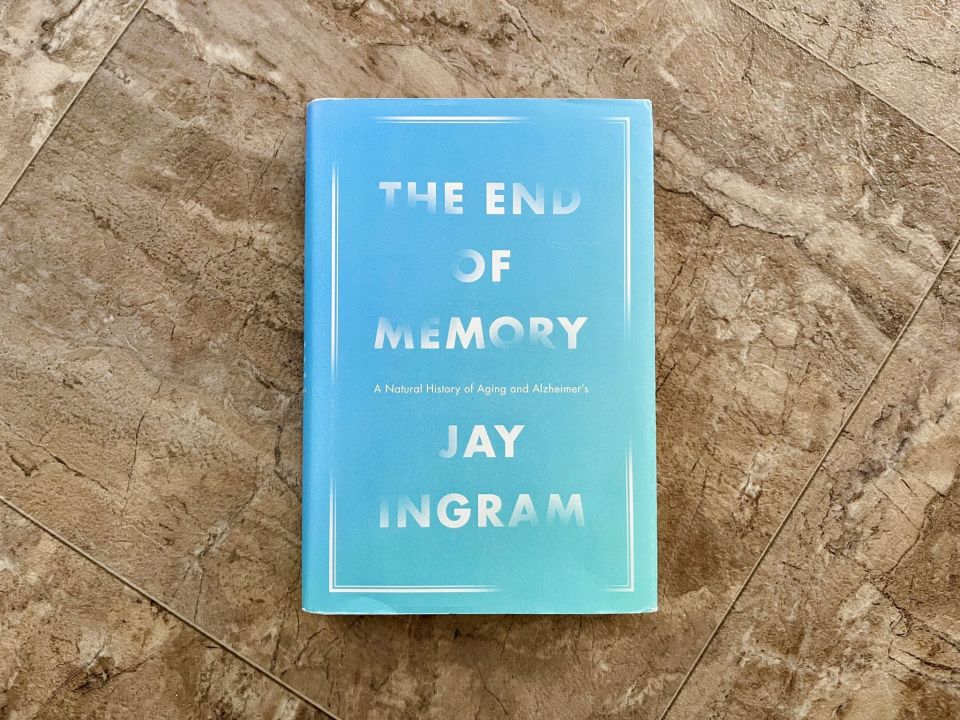The End of Memory: A Natural History of Aging and Alzheimer's →
by Jay Ingram

My (step-)mother passed away in early 2024 after more than a decade of battling progressively worsening dementia. By the time she left us, I could no longer remember who she was before the disease. This lingers with me—not just as a personal loss, but as a deep sense that she deserves to be remembered as the vibrant, compassionate, and thoughtful person she was before dementia took hold. And yet, I struggle to bring those memories into focus.
Over those ten years, I watched my father shoulder the immense weight of caregiving, often alone, as he tried to care for her, for himself, and to understand the disease that was reshaping their lives. In contrast, I did little to educate myself about dementia or to support him in ways that, in hindsight, feel like responsibilities I should have fulfilled.
Now that my mother is gone and my father is on his own, I find myself drawn to books like The End of Memory— a way to learn, to understand, even if it feels too late.
When I started reading, I hoped to make sense of what my mother experienced in her later years, to understand that her actions weren’t a matter of willpower but rather the inevitable effects of a disease no one can truly fight. I wanted to grasp how dementia and Alzheimer’s develop over time and what individuals, families, and communities can do to delay its onset—because, for many of us, it’s not a matter of if but when.
I got what I needed from The End of Memory, but not without some struggle. As with most topics rooted in biology and physiology, much of the scientific detail went over my head. I don’t have a background in science, nor do I have much interest in diving into its complexities. That’s not a flaw in the book or in Jay Ingram’s writing, but rather a reflection of my own difficulty in connecting with certain aspects of the material.
That said, I did take away some valuable insights. I found it particularly interesting to learn about the link between sugar intake and the likelihood of developing Alzheimer’s, as well as how staying physically and mentally active during leisure time can help delay cognitive decline. This passage from late in the book encapsulates the dynamic nature of Alzheimer’s and the factors that can help combat it:
“This is a reminder of the fact that late-onset Alzheimer’s is malleable: diet, exercise, education, a mentally challenging occupation, conscientiousness and likely many more as-yet-unidentified influences play a role in creating the brain reserve that is considered to protect against these genetic effects.”
— p. 179
I’d recommend The End of Memory to anyone interested in the history of aging and Alzheimer’s, especially those looking for a comprehensive look at the science behind the disease and the strategies that might help delay its onset. If you’re willing to engage with the more technical aspects, this book provides a well-rounded exploration of what we know—and what we’re still trying to understand— about Alzheimer’s and its impact.